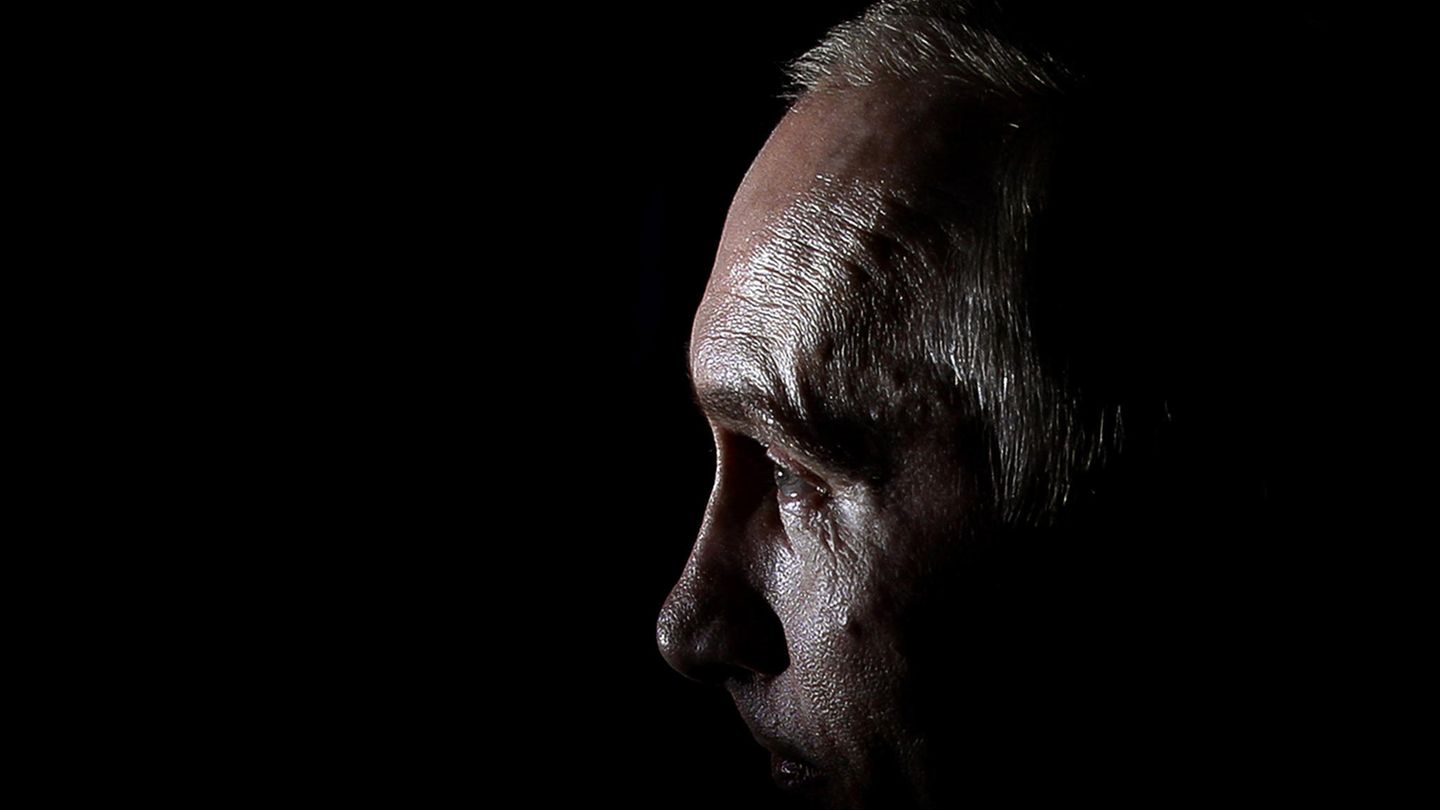Moscow’s war of aggression in Ukraine is not going as planned. The Russian troops have to retreat, in Russia itself the population is rebelling – and Putin’s apparent allies shine with restraint. This drives the head of state to despair.
Actually, the head of the Kremlin has the country and the people under control. Demonstrations are rare, anyone who becomes rebellious is locked away, sometimes even muzzled. In terms of foreign policy, Vladimir Putin is able to confuse Western states with his ambiguity, and sometimes even to worry them. Even now, Putin is trying to maintain this impression. At the moment, very little – if anything at all – is going according to plan.
This was already apparent at the beginning of the Russian invasion. The lightning victory on Ukrainian territory predicted by Russia has not materialized even after seven months. Putin’s troops are being pushed back more and more, and there is talk of a weakening army without adequately trained personnel. Instead, a pro-Kremlin oligarch is now scouring Russian prisons in search of criminals who are continuing Russian atrocities in Ukraine and bringing the country the hoped-for victory.
Putin can hardly afford to burn more soldiers
Because the Kremlin is still resisting the possibly urgent general mobilization. There are enough reasons for that. Putin “knows that if the sons of the new middle class have to be drafted into the military and sent to the front, he risks a political backlash in his own country,” writes Eastern Europe expert Ivan Krastev in a guest article for Austria’s “Standard”.
In addition, there is a risk of mass emigration of young Russians. Like Germany, Russia also has a demographic problem that has been exacerbated by the corona pandemic. “As such, Russia is probably fighting for the first time in its military history as a demographically vulnerable nation that cannot afford to lose soldiers because it will be impossible to replace them.”
The thing with the loyal citizens
What other options are there then? For the Kremlin boss, admitting defeat in the war and bringing the soldiers home is obviously still unthinkable. All that remains is to give what is to be given. At least the recently announced partial mobilization speaks for this. Now the reservists have to go – but that costs money. In the future, possibly not only more human lives, but already the support of numerous citizens.
What the Russians think of the partial mobilization has recently been seen not only at the external borders, where Russian cars are backed up to the west. Protests broke out in various cities, including Moscow. Where people used to gather in the spring to show their support for the policies of the ruler and the men at the front with flags studded with the “Z” symbol, the citizens are now rebelling. Whereby they accept the government’s usual harsh crackdown. Anyone who doesn’t react is condemned to fight at the front, as hundreds of examples from Moscow show.
But the protests are also growing in their own ranks. While Putin’s resignation was initially called for by a few regional politicians and MPs, MPs from St. Petersburg suggested that their Duma colleagues charge Putin with high treason. Because according to Article 93 of the Constitution of the Russian Federation, he endangers the security of the country and its citizens with the war of aggression against Ukraine. But the Kremlin is also taking action against politicians with its usual harshness: investigations are now underway against seven MPs because, according to a newly introduced paragraph, they discredit the incumbent government.
Harsh tones from apparent friends
Within his own state borders, Putin is able to keep the headwind in check. In contrast, other countries are more recalcitrant. This was most recently demonstrated at a meeting of the Shanghai Cooperation Council in the Uzbek city of Samarkand. While Putin pandered to his supposed ally there, for example by praising the “strategic, all-encompassing partnership” with China, the participants dismissed him. Putin waited in vain for a commitment to the Russian war of aggression against Ukraine, for example from the Chinese side. Instead, before the UN General Assembly, China demanded diplomatic efforts from the conflicting parties and a containment of the war.
For Turkish President Recep Tayyip Erdoğan, too, the return of the occupied territories is suddenly a prerequisite for peace. And Indian Prime Minister Narendra Modi even dared to publicly reprimand Putin. As a result, the “pro-Russian neutrality” cultivated by some states is also on shaky ground. So it’s getting lonely for the Kremlin boss after all?
The desire for the Russian empire
At the very least, distrust of Russia is high. This becomes obvious, but is not surprising in autocratic relationships in which one behaves “friendly” but represents one’s own interests to the outside world.
Nevertheless, the partial mobilization announced by Russia and the “referendum” in the Donbass read like a panic reaction from the Kremlin chief. It’s quite possible that Putin and his supporters will sell the predictable outcome of the “election” as a victory. Although some are turning their backs on the ruler, he may end up using the result to pretend that the West underestimated support for Russia.
In any case, the whole thing can already be read as a pathetic attempt to increase the number of Russian subjects – and thus come closer to a hundred-year-old forecast by a Russian chemist. According to this, already in 2001 Russia should have more than 500 million citizens. The fact that Putin has not even come close to achieving this goal should be another motivation for the fight. The violent deportations and resettlement of Ukrainian citizens also speak in favor of this.
The political decisions may seem desperate. But that doesn’t mean they should be taken any less seriously. Because the war is not over. And for everyone who already believes in Ukraine’s victory, Putin points to the nuclear button. It remains questionable whether he will press it. So far, however, he has been able to remain true to one principle in this conflict: his unpredictability.
Source: Stern
David William is a talented author who has made a name for himself in the world of writing. He is a professional author who writes on a wide range of topics, from general interest to opinion news. David is currently working as a writer at 24 hours worlds where he brings his unique perspective and in-depth research to his articles, making them both informative and engaging.



